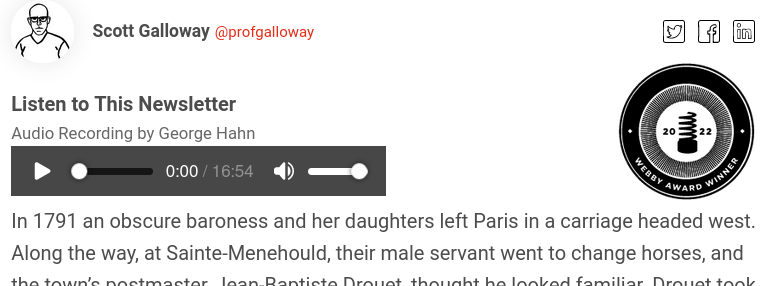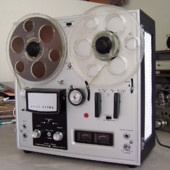
Code Golf is the art/science of creating wonderful little demos in an artificially constrained environment. This year the js1024 competition was looking for entries with the theme of "Creepy". I am not a serious bit-twiddler. I can't create JS shaders which produce intricate 3D worlds in a scrap of code. But I can use slightly obscure JavaScript APIs! There's something deliciously creepy about…
Continue reading →

How would you read this sentence out aloud? "In Hamlet, Act Ⅳ, Scene Ⅸ..." Most people with a grasp of the interplay between English and Latin would say "In Hamlet, Act four, scene nine". And they'd be right! But screen-readers - computer programs which convert text into speech - often get this wrong. Why? Well, because I didn't just type "Uppercase Letter i, Uppercase Letter v". Instead, I u…
Continue reading →

Listen to this blog post in your browser: Download MP3 audio. Powered by Amazon Polly. I've noticed an interesting trend on some of the blogs I follow. More of them - though by no means the majority - are including audio versions of the content. The usually look something like this: or The ones which have this are mostly using commercial Text-To-Speech (TTS) engines.…
Continue reading →

Fourteen years ago, I blogged about the future of voice. In the post, I asked these two questions - which I'd nicked from someone else: Are you faster at speaking or typing? Are you faster at reading or listening? Lots of us now use Siri, Alexa, Bixby, and the like because it is quicker to speak than type. For long-form wordsmithing - it's still probably easier to type-and-edit than it is to…
Continue reading →

The BBC Shipping Forecast is one of those strange bits of national tradition which, somehow, bridges the gap between infrastructure and folklore. You can listen listen to the latest forecast on the BBC - read by professional newscasters. But what if we wanted a robot to read it? If our speaker is sick, bored, or too expensive - how would we automate the audio version of the Shipping Forecast? …
Continue reading →

I've been experimenting with Amazon's Polly service. It's their fancy text-to-sort-of-human-style-speech system. Think "Alexa" but with a variety of voices, genders, and accents. Here's "Brian" - their English, male, received pronunciation voice - reading John Betjeman's poem "Slough": https://shkspr.mobi/blog/wp-content/uploads/2021/07/slough.mp4 The pronunciation of all the words is…
Continue reading →




